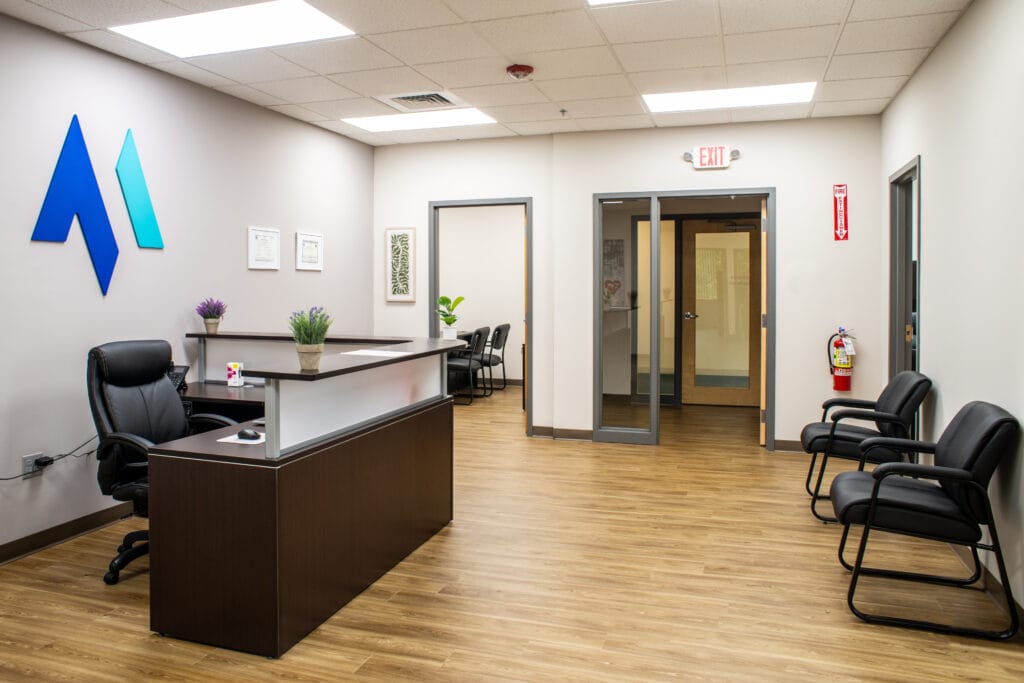Relapse is an unfortunate but common part of the journey toward recovery from drug addiction. Recognizing the warning signs early can make a major difference in preventing a full return to active addiction. If you know someone in recovery, it's important to be aware of the subtle (and sometimes not-so-subtle) changes that might suggest they are struggling. Understanding the physical, emotional, and behavioral signs of relapse can empower you to offer support when it's most needed.

Relapse usually starts long before a person actually uses drugs again. Emotional relapse is often the first phase, where internal struggles and unresolved feelings quietly build up. One of the first things to look out for is mood swings. People in early relapse may become more irritable, anxious, or depressed. They might seem easily overwhelmed by everyday problems or show heightened sensitivity to criticism.
Increased isolation is another red flag. Someone who is relapsing may withdraw from family, friends, and support groups. They might avoid social gatherings or make excuses to skip therapy sessions. Avoidance of accountability, such as not answering calls or lying about where they’ve been, could be a sign that they’re struggling internally. Keep an eye out for low self-esteem creeping back in. Statements filled with self-doubt, hopelessness, or negativity can signal emotional distress that may lead to relapse.
Mental relapse often follows emotional relapse. It’s the phase where a person starts fantasizing about using drugs again. They may glamorize past substance use, remembering only the "good times" while ignoring the devastating consequences. If you notice someone frequently talking about their past drug use in a nostalgic way, it might be cause for concern.
Another mental sign is bargaining. This might look like rationalizations such as, "Maybe I can just drink socially," or "One pill won't hurt me." Watch for seemingly innocent behaviors that could be setting the stage for relapse, such as reconnecting with old drug-using friends, revisiting places associated with substance use, or minimizing the importance of sobriety milestones.
Obsessive thinking about drugs, even if not acted upon, is a serious warning sign. If someone you care about seems preoccupied, distracted, or unusually secretive, they could be battling an internal mental war that puts them at risk for using again.
Behavioral relapse occurs when a person actually engages in substance use. However, there are often many behavioral clues that appear before they use again. A return to unhealthy routines is often a strong signal. Skipping meetings, therapy sessions, or appointments is one common indicator. Neglecting personal responsibilities like work, school, or family obligations, often follows.
Increased secrecy is another critical warning sign. If you notice the person locking doors, sneaking around, lying about their whereabouts, or frequently disappearing without explanation, it’s essential to pay attention. Financial problems can also indicate a return to drug-seeking behaviors. Sudden money troubles, missing valuables, or unusual borrowing might suggest they are funding a relapse.
Another behavior to watch for is deteriorating physical health. A person in relapse may stop caring for their hygiene, lose or gain significant weight rapidly, or seem chronically tired or sick. Physical appearance and energy levels can often reveal what words might try to hide.
Physical signs of relapse can sometimes be the most noticeable. Pay attention to sudden weight fluctuations—both gain and loss. Bloodshot eyes, frequent nosebleeds, shakes or tremors, and unexplained bruises can all be physical markers of drug use.
Changes in grooming habits are another telling sign. Someone relapsing might appear disheveled, wearing dirty clothes, neglecting personal hygiene, or showing up to events looking uncharacteristically rough. You might also notice a strong smell of substances, such as alcohol or smoke, on their breath or clothes.
Physical health can deteriorate rapidly after a relapse. Frequent illnesses, complaints of chronic pain, or sudden issues like vomiting and diarrhea can be indicators that drugs are being reintroduced into the body.
One of the clearest areas where relapse shows up is in relationships. Conflicts may become more frequent. People on the brink of relapse may become defensive, aggressive, or unusually secretive with loved ones. They might blame others for their problems or act out emotionally in ways that feel disproportionate to the situation.
They may start associating with old friends who enabled their drug use, while distancing themselves from their sober support network. If you notice them cutting ties with positive influences and gravitating back toward toxic relationships, it’s a serious red flag.
Diminished communication is another telltale sign. If conversations become shorter, more strained, or if they avoid talking about their recovery altogether, it’s worth paying attention to.
Denial is one of the most insidious aspects of relapse. A person heading toward a relapse often doesn't want to admit to themselves, or others, that they’re struggling. They might rationalize unhealthy behaviors, dismiss the seriousness of the situation, or minimize the risks.
You might hear things like, "I'm just stressed out," or "I'm fine—I don’t need meetings anymore." While these statements may seem harmless on the surface, they can indicate deeper issues. Trust your instincts; if something feels "off," it probably is.
Certain situations can greatly increase the risk of relapse. Major life changes, such as losing a job, the end of a relationship, or the death of a loved one, can create intense emotional pain that a recovering person may try to numb with drugs. Celebrations and holidays, where substances are often present, can also be difficult to navigate without support.
Even seemingly positive changes, like a new promotion or relationship, can create stress and pressure that might contribute to relapse if not managed properly. Being aware of these triggers can help you spot when someone might be particularly vulnerable.
Structure is critical for maintaining sobriety. A loss of daily routine, such as irregular sleeping habits, neglecting self-care, or skipping important activities, can be a major warning sign. If you see someone slipping back into chaotic, unstructured living, it's a good idea to check in.
Keeping a structured life with a consistent schedule, healthy hobbies, and strong accountability systems helps recovering individuals stay focused and balanced. When this structure breaks down, relapse often follows.
If you spot signs that someone might be relapsing, it’s important to act with compassion and understanding. Avoid blaming or shaming them, as this can drive them further into secrecy and denial. Instead, express your concern honestly and lovingly. Use "I" statements, like "I’m worried about you," rather than accusatory "you" statements.
Encourage them to reach out to their sponsor, therapist, or support group. If they don't have a support group, consider bringing up Alcoholics Anonymous (AA) or Narcotics Anonymous (NA). Offer to help them reconnect with treatment resources if needed. Sometimes just knowing that someone notices and cares can make a huge difference.
However, it’s also essential to set boundaries. Protect your own mental and emotional health, and recognize that you can offer support, but you cannot control another person’s choices. Relapse is not a failure; it’s often a part of the complex recovery journey.

If you or a loved one needs help a drug addiction, call us today at 844-909-2560, or email us at info@metaaddictiontreatment.com. You can also visit any one of our three locations, which are open 24/7:
Our flexible outpatient programs can help individuals live the sober life they want and deserve. Best of all, our programs allow individuals to progress in their recovery while still going to work, attending school, or taking care of their family. We understand that recovery must be effective both inside and outside treatment programs and we work hard to help our clients apply the lessons learned in treatment to their everyday lives. For individuals who need sustained support while fulfilling life responsibilities, outpatient treatment with Meta can be an ideal fit.
If you’re not sure whether outpatient treatment is appropriate for you or your loved one, consider taking our assessments.
Don't wait to get help. Start a journey towards recovery today.